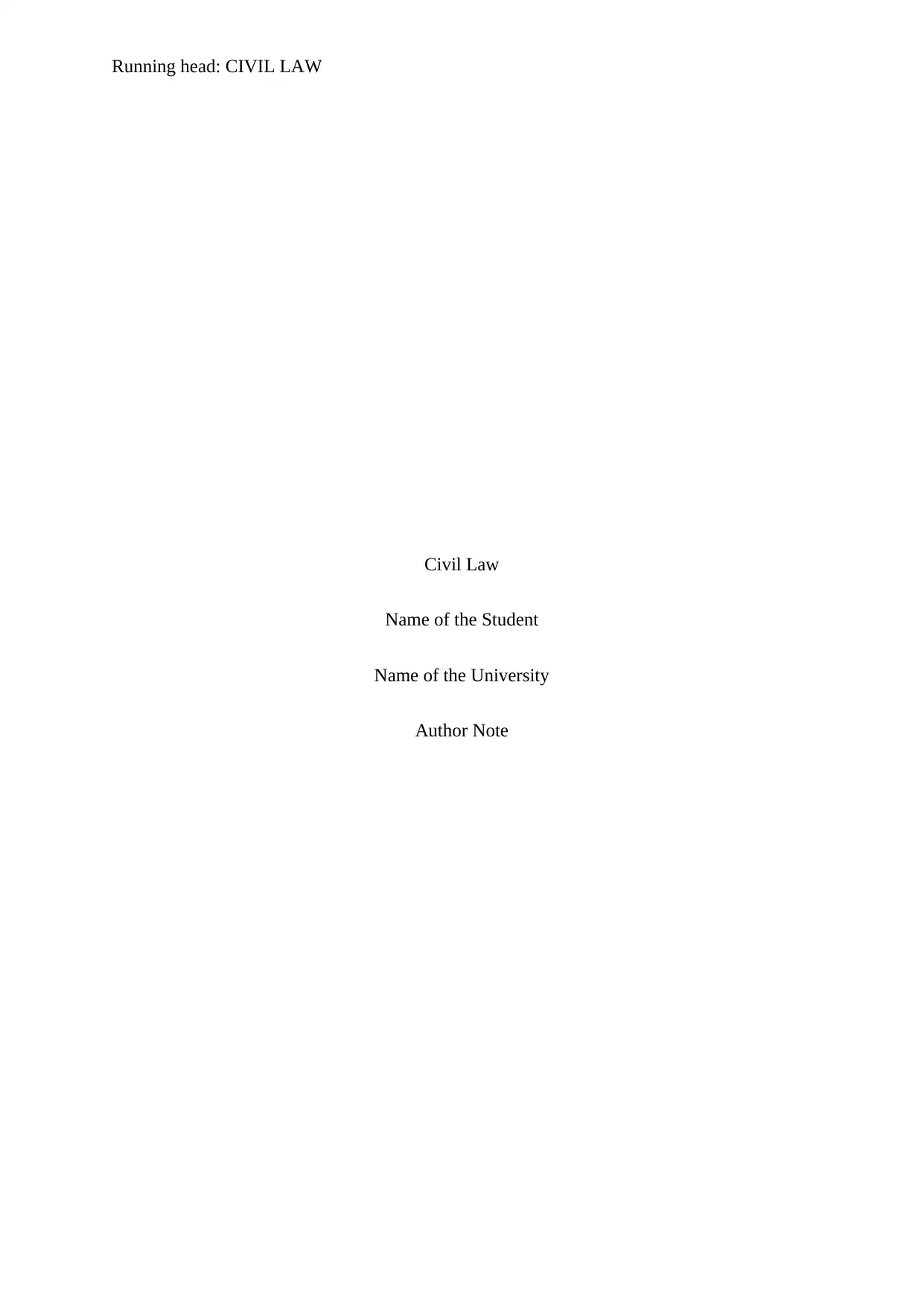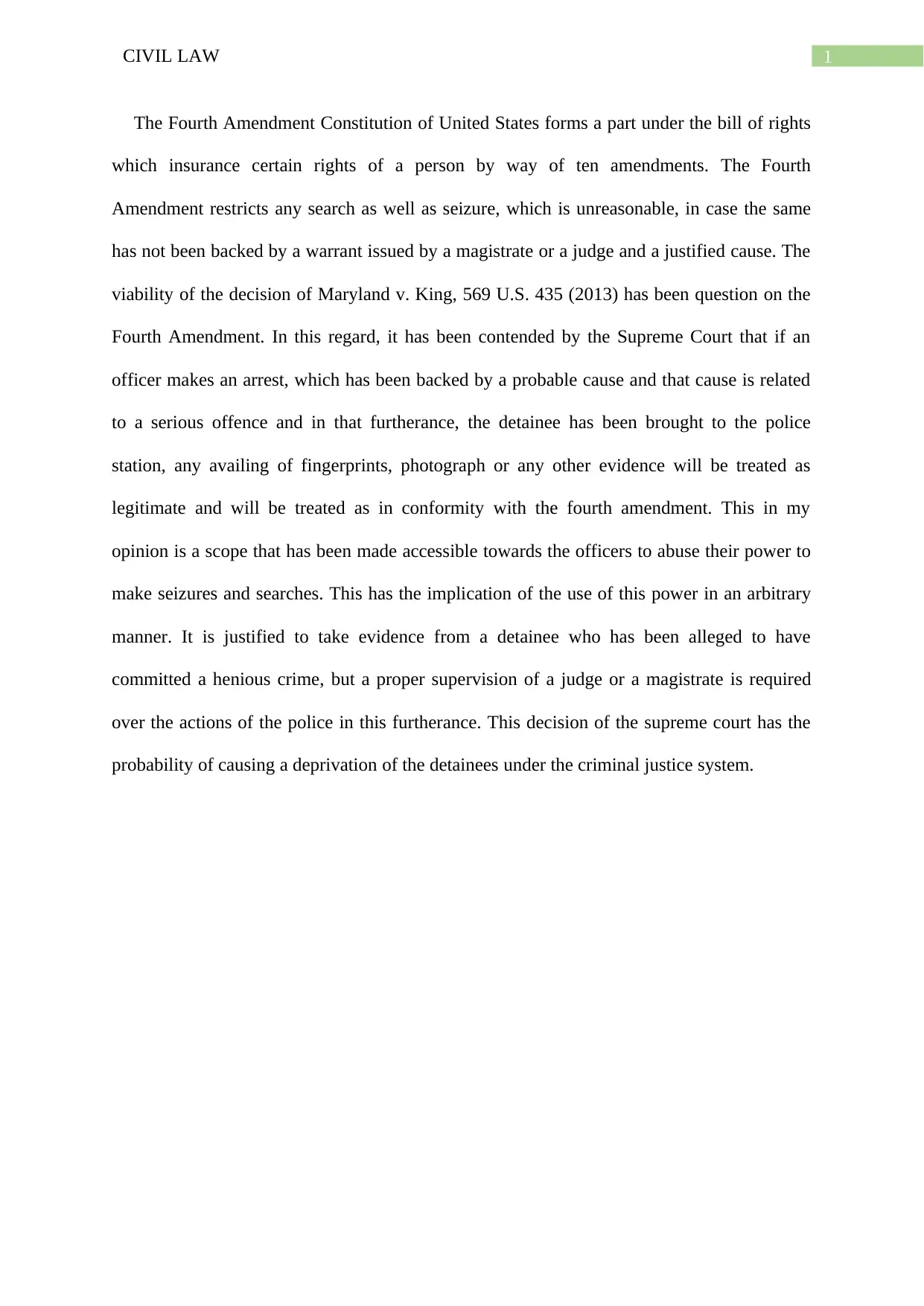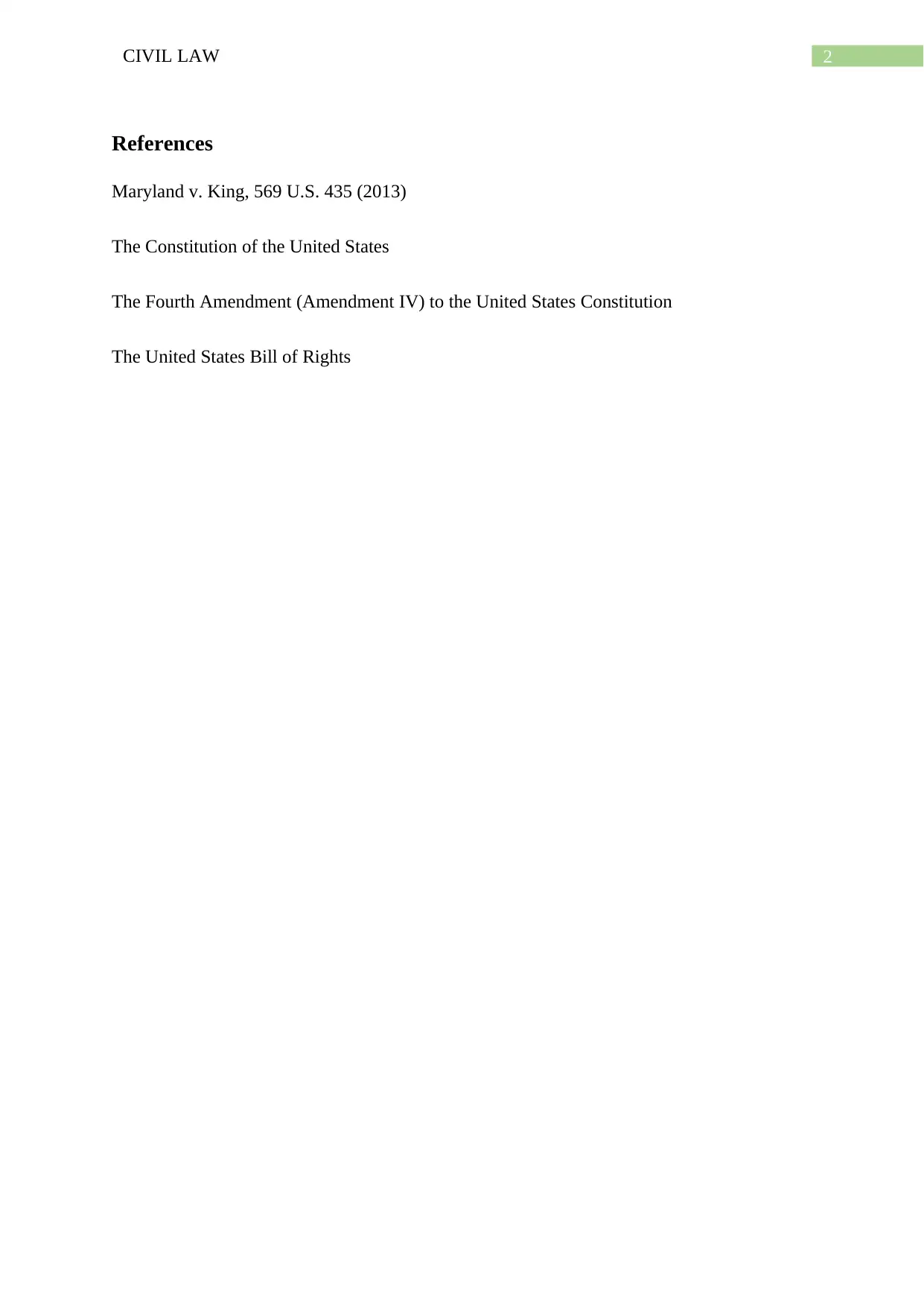Maryland v. King: A Case Study on the Fourth Amendment and Civil Law
VerifiedAdded on 2022/11/26
|3
|331
|37
Case Study
AI Summary
This case study analyzes the Maryland v. King Supreme Court case, focusing on its implications for the Fourth Amendment of the United States Constitution. The assignment examines the court's ruling on the legality of searches and seizures, specifically addressing whether taking fingerprints and other evidence from detainees aligns with the Fourth Amendment. The author argues that while evidence collection from detainees accused of serious crimes is justifiable, it should be subject to judicial oversight to prevent potential abuses of power by law enforcement. The study references the U.S. Constitution, the Fourth Amendment, and the Bill of Rights, and argues that the ruling has the potential to negatively impact detainees within the criminal justice system.
1 out of 3










![[object Object]](/_next/static/media/star-bottom.7253800d.svg)